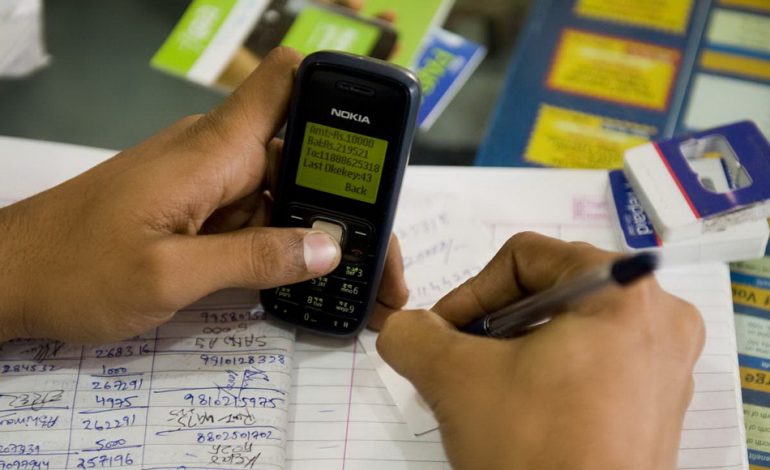Scammers don't always hide behind their phones and computers, many of them go out and operate. Their favorite victims ; mobile money agents or flooz. From the complaints received we group their flight technique into three strategies.
Let's see how they operate. The first one we will start with is the use of counterfeit notes.. Certainly, talk about the counterfeit note today, surprises or startles some people but these types of tickets still exist and are in circulation. The guy comes to a store asks to make a deposit. Usually large amounts; 150.000 FCFA, 200.000 FCFA, 300.000 FCFA or even more. Like any good customer, he gives the number on which the deposit must be made and gives the money to the operator or mobile money agent. Aware(e) of risk, the latter checks the sub and launches the query. For those who are used to these types of operations, at a given level, the customer is asked to confirm the given number. And this is where the game is played. The applicant indicates that this is not the correct number. He thinks for a moment, begins by searching his cell phone as if he were rechecking the number.. He later became offended that the agent was not dynamic and often reprimanded him..
By taking back his money, he pretends to leave the store or the booth while looking for the right number. While the agent blames himself for losing a big client, he returns to the charge by insistently giving another number : " Please, check the number carefully before starting the operation. There is no money in the country. Don't put me in trouble". The initial amount does not change. Unfortunately for the agent. The customer who pretended to hesitate has already cleverly exchanged the first notes given for fake bank notes. Content (e) not to lose a (gros) client, the agent no longer pays attention a second time to the tickets that will be given to him given that the customer had not moved from his shop or in front of the cabin and especially that the deposit amount has not changed. It is only after having served another customer or at the time of accounting that the observation will be made. Too late, the forger left a long time ago.
The second strategy starts from the same scenario. But here, the applicant displays high-end luxury and a reassuring appearance. It often comes on a brand new motorcycle or car. Here, these are not very often high deposits ; 50.000 CFA francs or 100.000, maybe less sometimes. While making your deposit transaction, he receives an endless call when asked to confirm the number. At the request of the agent, he will wave a hand or a head vaguely. Thinking he was acquiescing to the name displayed, the cabin attendant validates his deposit without having cashed the money, relying on its misleading appearance. This is when he ends his call two or three minutes later and will now ask for the name on which the deposit was made. As in the first case, il refusera et accusera l’agent de n’avoir obtenu son accord avant l’envoi. In discussions, il se désengage, part et abandonne le pauvre agent devant le fait accompli.
Le troisième stratagème est plus simple que les deux premiers. Here, le client initie un débat furtif avec l’agent lors de l’opération de dépôt. Il s’intéresse à sa vie ou parle de sa propre situation à lui. Dans les échanges presque amicaux qui partent dans tous les sens, l’agent embrouillé oublie même qu’il devrait percevoir l’argent du dépôt. Ce n’est qu’après le départ du déposant (voleur) qu’il constate un manquant dans sa caisse. Le mal est fait et il n’aura ces yeux que pour pleurer. Young girls are most often exposed to these last two cases of scam.
Currently, many poor citizens are victims of this type of scam. If you leave your homes to look for what to do to support yourself, have presence of mind on the scene and especially when it comes to handling money. Socially divorced friends of easy money also go out for the same needs. But unlike you, their intentions is to make money illegally.
Arnaud ACAKPO (Coll)

